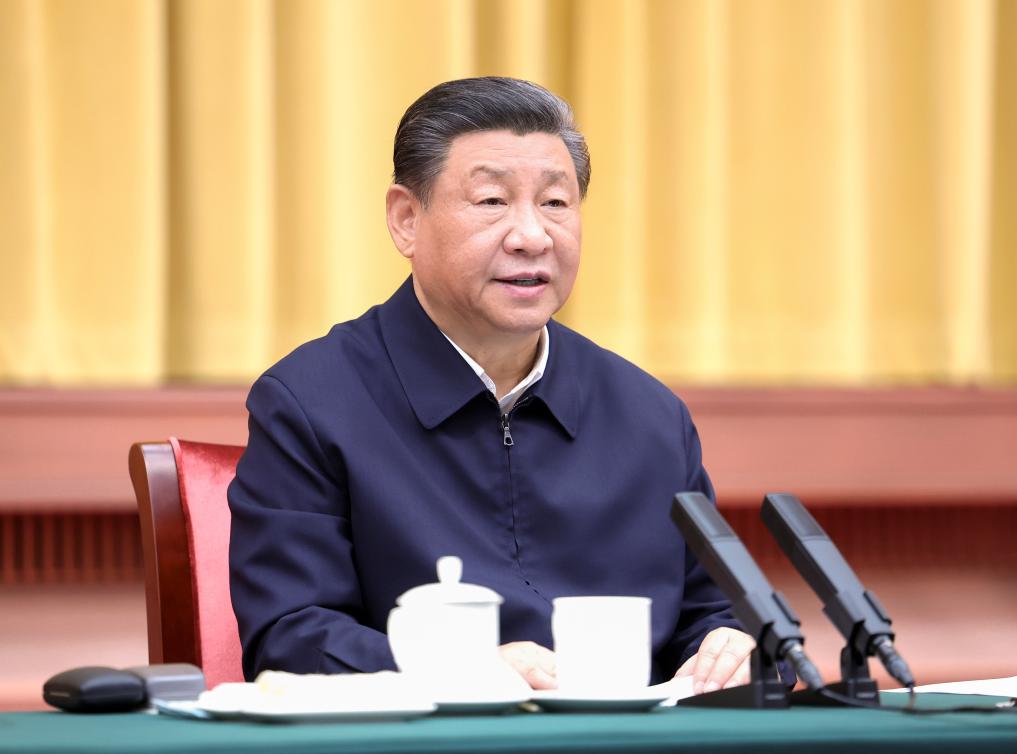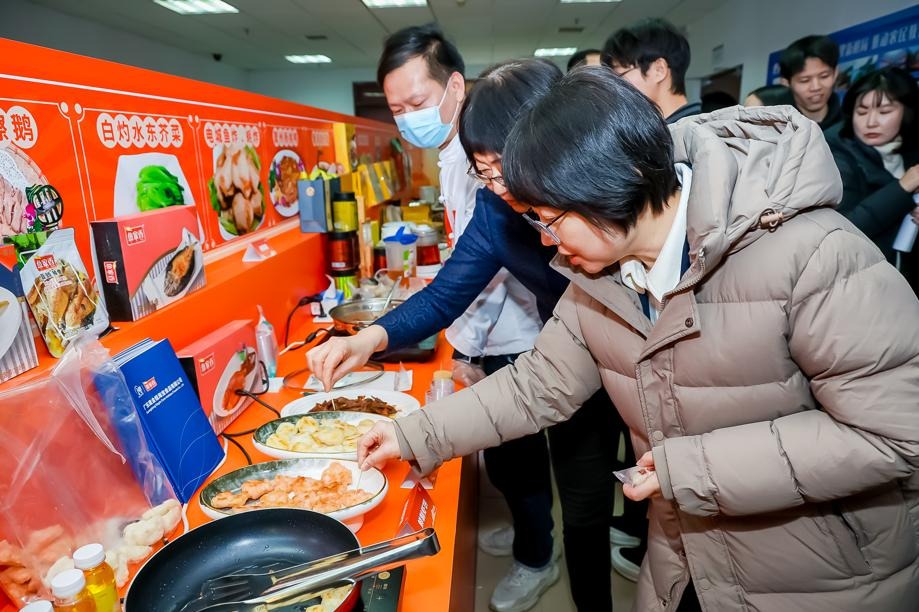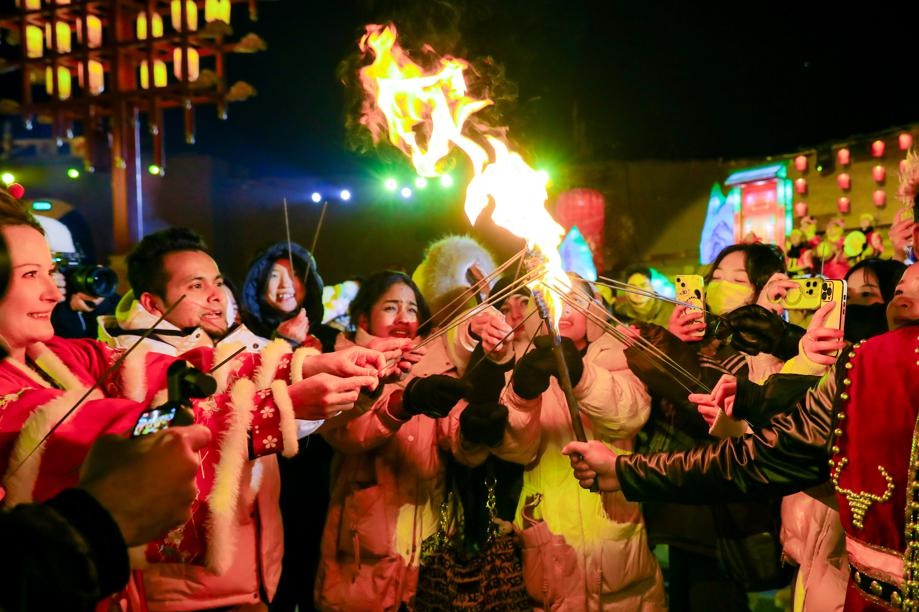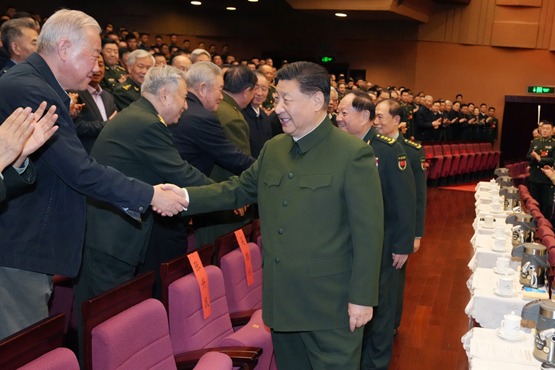Xi calls for steps to energize central region
President stresses need to promote tech innovation


President Xi Jinping called on Wednesday for concrete steps to propel the rise of China's central region as the country forges ahead with its own path to modernization, in another significant move to advance the nation's coordinated regional development.
While presiding over a high-level symposium in Changsha, Hunan province, Xi underscored the central region's vital role in the nation's economy as a major hub for food production, energy and raw materials, as well as a burgeoning center for modern equipment manufacturing, high-tech industries and comprehensive transportation.
Xi stressed the need to lead industrial innovation with technological innovation and proactively cultivate and develop new quality productive forces.
The gathering, aimed at propelling the rise of the central region in the new era, saw the participation of top officials including Premier Li Qiang.
According to the National Bureau of Statistics, the GDP of China's central region, comprising Shanxi, Henan, Anhui, Hubei, Hunan and Jiangxi provinces, grew 4.9 percent year-on-year to 26.99 trillion yuan ($3.75 trillion) in 2023, accounting for 21.4 percent of the national total. The growth rate is lower than the national average rate of 5.2 percent last year.
The president, who last chaired a similar meeting in Nanchang, Jiangxi province, in 2019, noted on Wednesday that the region has seen stronger momentum for innovative development, significant improvements in its industrial foundations, and new strides in reform and opening-up over the past five years.
He also acknowledged the difficulties and challenges in promoting the rise of the central region, saying this requires pragmatic research and solutions.
According to the NBS, the region's fixed-asset investment grew 0.3 percent year-on-year in 2023, compared with the national average of 2.8 percent.
Going forward, Xi called for the region to build on the foundation of the real economy to strengthen its advanced manufacturing sector, saying that proactive steps must be adopted to advance new industrialization, and to transform and upgrade traditional industries, while nurturing emerging sectors.
He underscored the need for the deeper integration of sci-tech innovation with industrial innovation, strengthening major technological breakthroughs and reinforcing the principal role of enterprises in innovation.
To invigorate the region's traditional sectors, it is important to put in place projects for the transformation and upgrading of technologies in the manufacturing sector and for upgrading large-scale projects, he said.
He called for better alignment with major national strategies and regional development initiatives, including integration with the Beijing-Tianjin-Hebei region, the Yangtze River Delta, and the Guangdong-Hong Kong-Macao Greater Bay Area.
The president highlighted the need for the region to undertake industrial transfers, optimize the planning of its industries and beef up the development of a modern transportation infrastructure system.
Setting out his vision for the six provinces to advance reform and opening-up, Xi urged steps to make the region an area with stronger competitiveness in the nation's opening-up drive, advance reforms on the market-based allocation of production factors and improve the fundamental systems of the market economy.
He called for authorities to "correct local protectionist behavior across the board", steadily expand institutional opening-up and further integrate with the joint building of the Belt and Road.
Moreover, the region should enhance its attractiveness to domestic and foreign resource elements, stay committed to supporting State-owned enterprises becoming stronger, better and bigger, and further optimize the development environment for private enterprises, he added.
The region's green development was highlighted by Xi during the session, in which he laid out requirements for authorities to coordinate ecological and environmental protection and green, low-carbon development.
To build a beautiful central region, he stressed that authorities must ramp up the battle against pollution, strengthen comprehensive and collaborative management of the ecology and environment of major rivers and lakes, and enhance the collection and treatment of urban and rural sewage.
Xi urged policymakers to pay special attention to the old revolutionary base areas, where the Communist Party of China built up its revolutionary cause before founding New China. The bases are mainly concentrated in central China.
The revitalization and development of old revolutionary base areas and underdeveloped counties and districts must receive special attention, he said, adding that shortfalls in public services must be addressed and sectors with local characteristics must be built up, in a bid to prevent the recurrence of poverty and advance rural vitalization.
The president underlined the significance of the central region in guaranteeing China's food, energy and resource security. According to the National Development and Reform Commission, the grain production volume of central China reached 200 million metric tons in 2023, accounting for 28.8 percent of the national total.
A number of green agricultural product manufacturing, processing and supply bases should be established to ensure the stable and secure supply of grain and other important agricultural products, he said.
Additionally, efforts should be made to further improve the development and utilization levels of coal, rare-earth elements and other resources, Xi added.
- Drug traceability code implementations reaches nearly 95%
- Pakistani satellite among 3 launched
- Shanghai to enhance community healthcare centers
- Shanghai continues to enrich ecological environment
- Shanghai to enhance education reform aligned with social needs
- Shanghai adds 622,000 new urban jobs in 2024





































